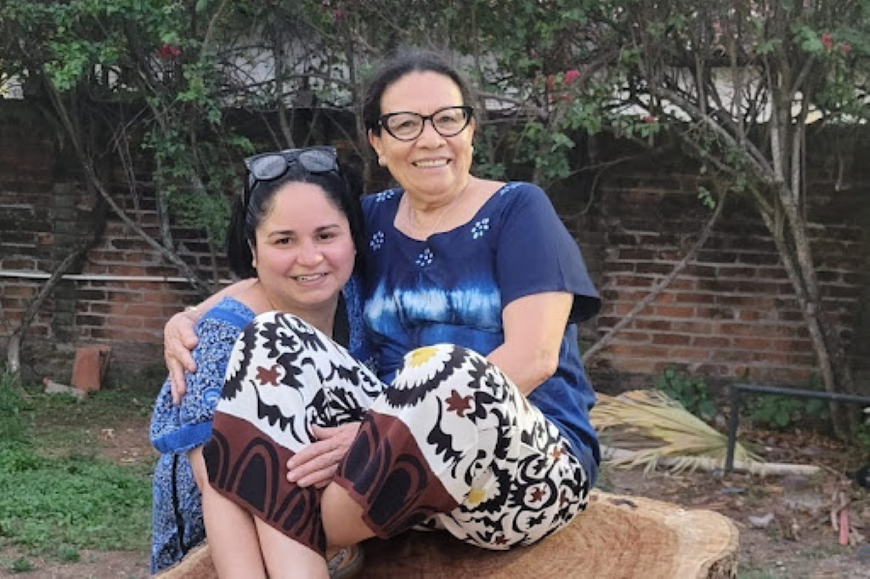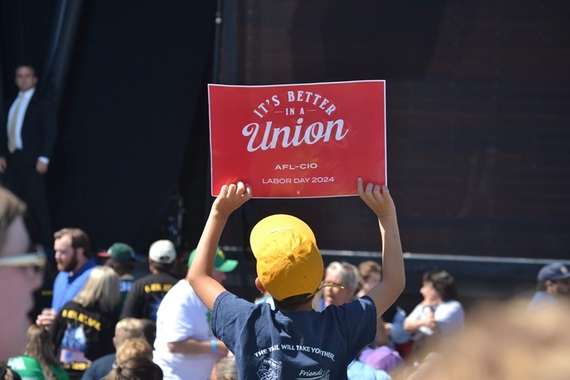From Dissertation to Documentary
Paula Cuellar Cuellar (PhD ‘22), has just completed a Consortium for Faculty Diversity Postdoctoral Fellowship at Bowdoin College and will begin a position in the fall as the Jacqueline and Michael Wald Assistant Professor in Human Rights, Genocide, and Holocaust Studies at the University of Texas at Dallas. Two women’s testimonies she recorded for her dissertation, “Salvadoran Women Speak: Female Accounts of Their Struggle Within a Revolution, 1981-1992,” formed the basis for the documentary Film Añil (Indigo) that she co-produced with Julio López. The film has already earned several awards, including Best Central American Documentary at the Ícaro International Film Festival, Best Documentary at the Chicago Latino Film Festival, and Best War Theme Film in the Berlin Indie Film Festival.
Tell us about your background and what brought you to the history PhD program at the University of Minnesota
My professional interests emanate from having been born and raised in a family devoted to the protection and defense of human rights, my experience living in exile both in my early childhood and in my adulthood, my upbringing as a daughter of an armed conflict, and my own work on human rights issues. As a consequence of the armed conflict in El Salvador that took place between 1980 and 1992, I witnessed firsthand the ravages of war and my family was forced to leave the country. I later returned and served as the Director of the International Unit at the Supreme Court of Justice of El Salvador.
Pursuing a PhD in history at the University of Minnesota was a dream come true for me. I frequently consulted the University of Minnesota’s pioneering Human Rights Library and was aware of the strengths of the Latin American history program, the Human Rights Program, and the Center for Holocaust & Genocide Studies.
How did the research for your dissertation evolve? Did you encounter any surprises?
When I began my research for my dissertation, one of my initial interviewees dismissed the significance of my topic, arguing that women had rarely been victims of sexual abuse during the Salvadoran armed conflict. I decided to persist in my study because one of my closest family members had been a victim of sexual violence by a member of the guerrilla forces during the civil war while living in exile.
I hoped that what my relative experienced was a single event. Consequently, I focused on investigating and documenting sexual abuse committed solely by the governmental security forces. Nevertheless, several informants asked me whether I intended to interview victims of such crimes perpetrated by the guerrilla forces as well. Initially, I was shocked by that question, but aspired to maintain scholarly impartiality. It is important to clarify that I am not suggesting that both sides were equally culpable. Yet, I can affirm that the human rights abuses committed by the guerrilla forces during the Salvadoran civil war are more numerous than depicted in the Truth Commission report and subsequent scholarly works.
Discovering that the type of abuse my family member suffered was not an isolated incident forced me to reconsider deeply ingrained paradigms about the Salvadoran Civil War and about its two contending parties. That was definitely a “bad” surprise. My good surprise was to have the unwavering support from my mentors, Dr. Patrick McNamara, Dr. Sarah Chambers, Dr. Barbara Frey, and Dr. Alejandro Baer. Their guidance, encouragement, and kindness enabled me to conduct over a hundred interviews worldwide, document some of the most harrowing and painful stories I have ever heard, write a doctoral dissertation, and—most of all—survive that process in almost one piece.
Now, as I embark on a new professional journey as an assistant professor at UT–Dallas, I feel a moral and ethical obligation to pay it forward. Besides invaluable academic knowledge, the most profound lesson I learned from my mentors was the importance of creativity in fostering student success and the value of building rapport in a safe and supportive environment. I encourage students in my classes to maintain a sense of skepticism and to question prevailing assumptions, even when I am lecturing. And I advise them, “be prepared to be surprised inside the classroom, when conducting research, and in life.”
What led you to turn some of that research into a documentary film, and what did you learn from the process?
My book manuscript explores the perpetration of sexual assault against women during the Salvadoran armed conflict by the security and guerrilla forces, arguing that these crimes were sustained by deeply entrenched patriarchal norms. I conducted interviews with sixty women who had been victims of rape at the hand of both belligerent parties. Had I not shared the findings of my scholarly work with those who unconditionally provided information for my research it could be deemed “academic imperialism” and contributed to the notion of the academy as an “ivory tower.” Given that a significant number of women face challenges with literacy, it became imperative to develop an alternative means of conveying the results to them.
One example of my public engagement scholarship is my film Añil (Indigo) (2023), which highlights the testimonies of two women: Neris González and Rebeca (pseudonym). This United Nations Development Program (UNDP) sponsored film premiered internationally as part of the official selection of an international women’s film festival held in Mexico City in August 2023. But one of my greatest honors was having our first screening with the very community where the idea to adapt my dissertation into a film was conceived: Suchitoto, a town in the Salvadoran countryside, with a Salvadoran women’s association composed of former female insurgents. This initial screening was profoundly meaningful, as it validated the experiences and voices of the women whose stories are central to my research.
Oral history methods and communicating these stories to a broader audience through alternative formats, such as film, amplify voices often excluded from dominant narratives and mainstream academia. Indigo has sparked a difficult but crucial discussion regarding the armed conflict, necessary for the healing processes within Salvadoran society. Often, the only redress these victims have is to see their stories affirmed and shared with a wider audience beyond their local communities, where they might face unjust blame for their suffering.
Where do you hope to go with your research and teaching?
My appointment at University of Texas–Dallas is housed at the Harry W. Bass Jr. School of Arts, Humanities, and Technology, which promotes fluid movement between traditional disciplines and the cutting-edge experimental investigation of emerging technologies. My unique educational and professional background as both a historian and a human rights lawyer, coupled with my lived experience, will be an ideal fit for this dynamic environment. As a Central American bilingual migrant woman and person of color who pursued graduate studies in the United States, I am particularly interested in teaching courses that empower students to challenge dominant historical narratives and explore the impacts of intersectionality, thereby promoting a more just and equitable society.
In my new project, I aim to delve into the persisting transgenerational effects on the children of sympathizers, collaborators, militants, and combatants of both the security and guerrilla forces in Guatemala, Nicaragua, and El Salvador. By including both sons and daughters, I aspire to study whether the gender of the child influences the way they process their emotions, especially with the absence of their parents during periods of extreme violence.


